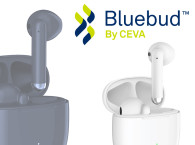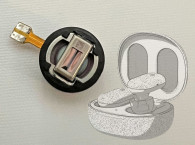Highlighting innovations in all fronts, from design to fast charging technology, at the MWC 2023 show OPPO was not afraid of pushing the boundaries in mobile technology and applications. The Chinese manufacturer showcased an extensive exploration of smart living products, spanning entertainment, productivity, learning, and health applications.
Some products will actually be shipping and sold, such as the OPPO Find N2 Flip, which appeals to everyone that once used a clamshell phone and would like to have a smartphone small enough to put in the shirt's pocket. Others are pure demonstrations of "let's see if we can guess what Apple could do one day", such as Assisted Reality smart glasses, and the OPPO Air Glass 2, which replaces the previous proof-of-concept products that are mandatory at the Barcelona MWC show.
The really intriguing but extremely interesting announcement was in the audio front and was another important sign of how unhappy the mobile industry - much like the consumer electronics and audio industries in general - is with the current Bluetooth data rate restrictions. Even if - much like Apple has already been hinting that it could do - this would mean to follow a separate path from the standard specifications. As long as the source and sink side of technology is delivered, it is possible to follow a new, unique path.

Apparently that is what OPPO has decided to do, since the company is one of the largest smartphone manufacturers but also designs and manufactures wireless speakers, headphones and true wireless earbuds. Following the successful development of the MariSilicon X NPU SoC back in 2021, Oppo has now expanded this effort originally intended to address image processing needs, now also to improve audio. In this case, as OPPO mentioned in the press event, in order to allow wireless transmission of high resolution lossless Bluetooth audio and also pave the way for enhanced support of spatial audio.
The new MariSilicon Y is an audio system-on-chip (SoC) specifically developed for that mission, although we cannot yet say when it will be available - OPPO is targeting potential market applications for 2024. Since the announcement in OPPO's event in the fist day of MWC 2023, audioXpress has been looking for more information and to confirm available data - which was not distributed in any press release and is simply available in a dedicated web page.
As audioXpress learned, the MariSilicon Y SoC is actually based on the established CEVA Bluetooth technology, with a special proprietary extension to support up to 12Mbps - very likely using a combination of multiple channels. This is a proprietary approach, which OPPO can afford in order to propose lossless audio streaming as a differentiator for its brand/ecosystem.
This is definitely not compliant or in any way related with the longstanding Bluetooth Higher Data Throughput efforts, ongoing since the publication of the Bluetooth 5 specifications, and which doubled the data rate that could be achieved between Bluetooth Low Energy (LE) devices to 2Mbps (effective 1.4Mbps throughput). As an increasing number of applications are looking for even greater data transfer performance, as well as support for streaming larger media, an even higher data rate Bluetooth LE PHY development effort has been established to address that growing market need. Combining multiple channels is an approach that has been discussed and tested (see this 2019 Renesas white paper – "High Data Throughput using Bluetooth Low Energy for Low-Power Wireless Communication").
According to the information provided by OPPO, the self-developed MariSilicon Y chip will be able to support 24-bit/192kHz high resolution lossless audio transmission via Bluetooth. As OPPO states, "The ultra-high-speed Bluetooth solution combines unprecedented 12Mbps bandwidth with OPPO’s proprietary URLC codec, for spectacular sound quality in a world without wires." This URLC adaptive codec is another intringuing component of the announcement, with a specified ability to scale from 80kbps to 10Mbps.
The new OPPO SoC features unprecedented on-device computing power, with a high-performance 590 GOPS neural processing unit (NPU) - a specialized processor for network application packets, using a parallel architecture optimized for processing massive quantities of data such as audio and video. OPPO says that this platform offers more than enough processing power for highly complex on-device operations, such as source separation (extracting the guitar or voice parts from a song), and provide a personalized spatial audio experience for every user.
The new SoC was also optimized for the requirements of advanced 5G mobile devices, using the most advanced RF CMOS technology to comfortably support enhanced performance in WiFi6/6E applications with 66% less power consumption for best-in-class battery run-time. This combination of technologies in the MariSilicon Y is available in a fingernail-sized device that will be also used to power next-generation True Wireless Stereo (TWS) earbuds.
www.oppo.com/en/marisilicon-y
www.oppo.com








